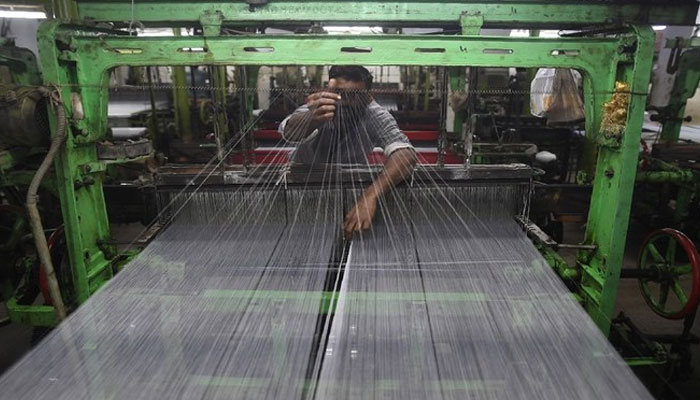Textile exports record 5% rise in October after months of contraction
November 03, 2023

- Textile shipments increase to $1.43bn in Oct: APTMA.
- Exports in first 4 months of current fiscal year declined by 7%.
- Downward trend in exports continued till September.
ISLAMABAD: Textile exports registered a 5% increase for the first time in 10 months, signalling a potential recovery for the industry that has been battered by rising input costs and a global recession, The News reported Friday.
According to the data from the All Pakistan Textile Mills Association (APTMA), the shipments increased to $1.43 billion in October from a year earlier. This was the first month of positive growth since January.
However, textile exports in the first four months of the current fiscal year, which started in July, declined by 7% to $5.55 billion from the same period last year. The data also shows that during the 10-month period in the calendar year 2023, textile exports fell by 16% to $13.14 billion from $15.88 billion registered in the same period of calendar year 2022.
In January 2023, textile exports tumbled by 15% to $1.32 billion from $1.55 billion in the same month of calendar year 2022. In February, exports fell by 30% to $1.18 billion from $1.67 billion in the same month of 2022. February registered the highest negative growth.
The downward trend in exports continued till September: in March, exports fell by 23%; in April, 29%; in May, 20%; in June, 14%; in July, 11%; in August, 7%; and in September, 11%.
"It is a matter of pride that due to collective efforts, we are observing positive trends related to a significant reduction in our trade deficit," said Gohar Ejaz, minister for Commerce and Industries, on X, formerly Twitter.
Ejaz said the country is now witnessing economic stabilisation, as the trade deficit squeezed to $7.42 billion in the first four months of the current fiscal year (FY24) from $11.36 billion in the same period of FY23 because imports during July-October 2023 went down to $17.03 billion from $20.91 billion in the same period of 2022. Likewise, exports during July-October 2023 stayed at $9.61 billion, which were at $9.55 billion in the same period of 2022.
Last month, APTMA asked the government to lower the electricity tariffs for the textile sector to make it competitive with regional countries.
APTMA sought an electricity tariff without cross-subsidy of 10.85 rupees per unit being extended to non-productive sectors.
The textile industry is currently paying 16 cents per kilowatt-hour (kWh) for power, which is higher than the tariffs in Bangladesh, India and Vietnam.
Originally published in The News





